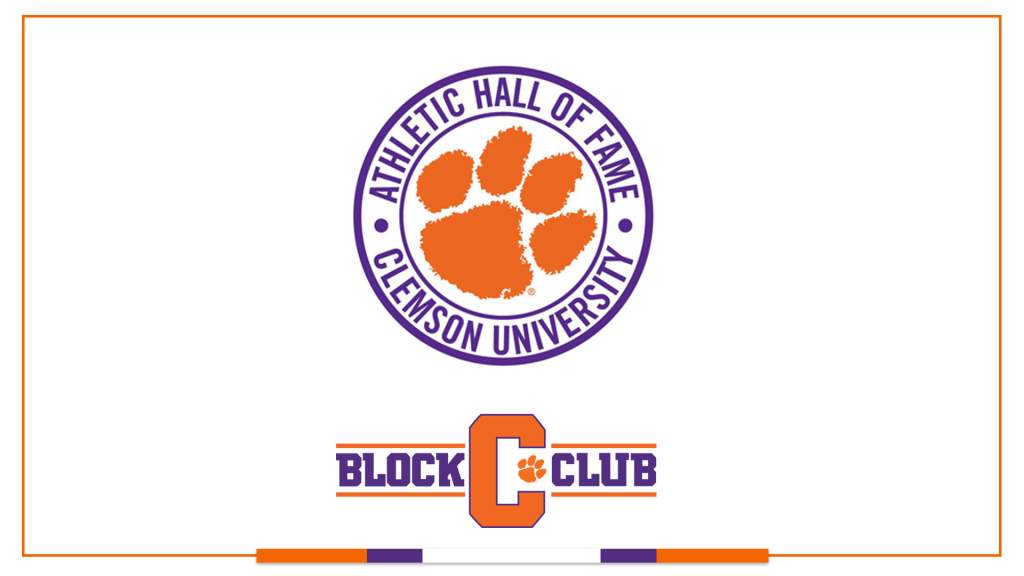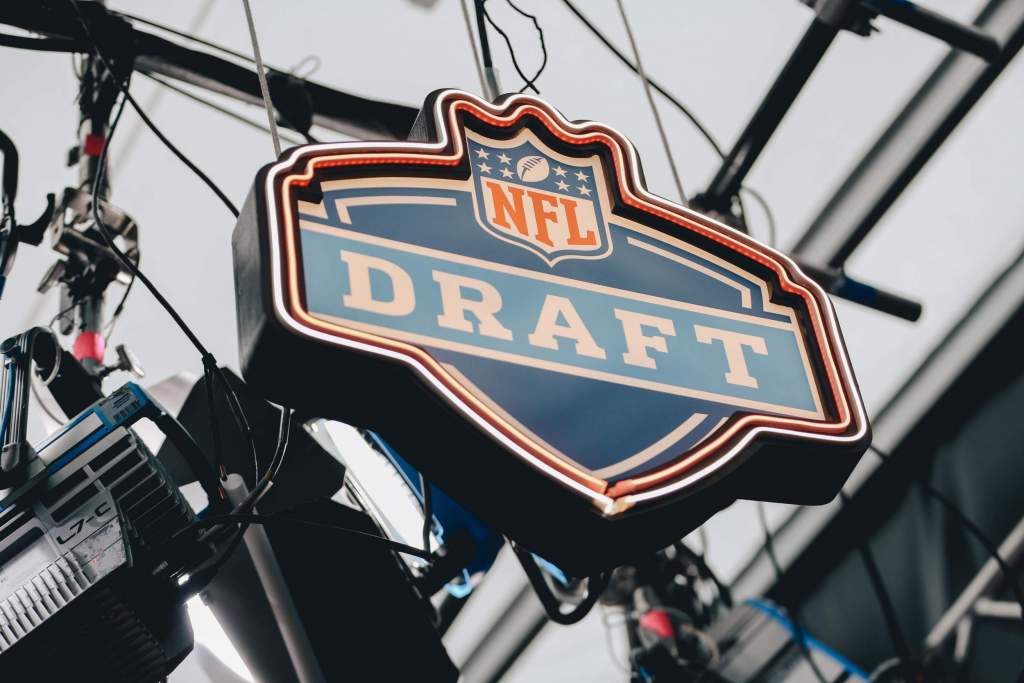September 16, 1998
by Brian Hennessy
Obed Ariri Football, Soccer; 1976-80
“I am like a leaf blown about by the wind; I never know where life’s road will take me.” Those are the sentiments of former Tiger placekicker Obed Ariri during his time at Clemson, words that enabled the outgoing student-athlete to accomplish more than he ever dreamed of as a kid in his hometown of Owerri, Nigeria.
“We used to play soccer with apples and oranges in the streets of Nigeria,” Ariri recalls. “That was really convenient because we just grabbed another off the tree when we kicked one up too badly. I could play the game all day and even go without eating so I could keep on playing.”
Ariri, now 42, arrived at Clemson in 1976 to play soccer after hearing from Coach Ibrahim in a letter expressing interest. Amazingly, getting an education was so important to Ariri that he came to Clemson without a scholarship. Ariri lettered on the soccer field as a freshman in ’76 and netted 15 goals.
When the 1977 school year came around, Tiger football head coach Charley Pell noticed Ariri’s strong foot and invited him to try his talents on the gridiron. When Jimmy Russell, who was the first-team starter entering the season, was injured, Ariri took over the kicking duties and booted his way into the Tiger record books.
At the end of his career, Ariri set or tied nine NCAA records for field goal kicking and scoring. During his four-year career, in which he played in 47 games and started 44, he scored 288 points, which still ranks atop the all-time Tiger scoring list. His 63 career field goals was tops in the nation at the time and his 23 field goals in 1980 was the best in the country as well. The 23 field goals also still stands as the ACC single-season record. It was the first time a Tiger led the nation in any statistical category. Ariri also fulfilled the wishes of his mother by receiving his degree in industrial management before his playing days at Clemson were over.
Perhaps the 5′-9” kicker’s most memorable moment came at Virginia in 1980. With the score tied 24-24 and 11 seconds left, Ariri lined up for a game-winning 52 yard field goal. Clemson was 19-0 all-time versus the Cavaliers entering the game, so one would think there was a tremendous amount of pressure riding on the senior’s shoulders. But in a strange sequence in the middle of a timeout to ice Ariri, instead of keeping to himself or going to the sidelines, he approached the Virginia players at the line of scrimmage. He then taunted the Virginia players and told them to try and stop him. Sure enough, Ariri’s boot sailed through the uprights with six seconds remaining and gave the Tigers a 27-24 victory. The win marked the largest fourth quarter comeback in Clemson history, as the Tigers were down 24-10 after three quarters. In the post-game interviews, Ariri was asked to explain if he felt pressure. He said, “Pressure, you call that pressure? Playing for your country in front of 120,000 fans in the World Cup…now that’s pressure.”
Ariri also garnered attention on the soccer field at Clemson. He lettered under Coach Ibrahim in just two seasons, 1976 and 1979, but still netted 32 goals and had six assists.
Ariri was a seventh round draft pick of the Baltimore Colts in 1981 and played two seasons for the Tampa Bay Buccaneers. Although his professional football career did not pan out, #1 will always be remembered as one of the best kickers in college football history.
Chip Clark Football, Basketball, Golf, Track & Field; 1942-43, 1945-46
To say Chip Clark was diverse is an understatement. All Tiger fans that followed the athletic programs in the 1940s know that he played four different sports, football, basketball, golf, and track & field. But there is a lot more about Clark that people do not know.
Clark, who’s father died at a young age, was strongly influenced by his mother as a youth. The native of Lexington, NC, came to Clemson in 1942 after Walter Cox and Banks McFadden came to his home and urged him to bring his talents to Tigertown.
When he arrived at Clemson, he played football and basketball, and participated in track & field as a freshman in the 1942-43 season. In the years during World War II, freshmen could play athletics at the collegiate level. In football, he played the left end position at 168 pounds on both offense and defense, and started nine games. He also garnered All-Southern Conference honors. When the football season ended, he laced up his sneakers and played for the Tigers on the hardwood. He would have played baseball too if it were not for his demanding schedule. He is still the only athlete in Clemson history to serve as team captain in three different sports.
Clark then put his athletic career on hold when he went into the Air Force in ’43 as the War intensified. He received his bomber’s pilot wings, and was so good that he was made an instructor and kept in the United States. By the time his service was done, he had spent 29 months in the Air Force and was qualified to fly every bomber in existence including the new B29, which he was training for to fly over Japan had the war continued.
On the way home from his discharge from Texas in 1945, Clark stopped at Clemson the day before the football season opener against Presbyterian to see Coach Howard. Coach Howard insisted on Clark suiting up and for him to stay for the remainder of the season. When Clark arrived home one week late, his mother was furious because she had enrolled him at North Carolina, where he would have played with UNC great Charlie “Choo-Choo” Justice. Clark ended up starting eight games the rest of the season, and played opposite fellow 1998 Hall of Fame inductee and the late Eddis Freeman.
Later that school year, he lettered again in basketball and was the team captain. Clark then played his fourth sport when he restarted the golf program with three other students and also was its’ team captain. In their first year, the golf team beat eventual national champion LSU.
In his senior season on the gridiron in 1946, Clark was on excessive rehabilitation due to “serious pulled muscles” and struggled, despite starting five games and scoring four touchdowns. He wanted more playing time, but Coach Howard was afraid of permanent injury. He still managed to receive Honorable Mention All-America honors.
Clark received his degree in textile engineering in 1947. He drew interest from the Pittsburgh Steelers, but decided to take a job with the Celanese Corporation and later rose to become its Executive Vice President for Fiber Marketing. All in all, Chip Clark experienced more in the span of five years than many people do in their lifetimes. —information provided by Arthur Spiro
Eddis Freeman Football, Basketball, Golf; 1943-46
Eddis “Fireball” Freeman lettered at Clemson in three different sports, still one of just 15 athletes in Tiger history to do so. The Greenville, SC native earned eight letters combined at Clemson in football, basketball, and baseball. He lettered from 1943 to 1946 in football, 1944 to 1946 in basketball, and 1945 in baseball.
Freeman played in the 1942 Shrine Bowl in Charlotte, and was named All-State and All-Southern in high school football, as he played for Greenville High School at a modest 135 pounds. He attended Greenville High at the same time as Clemson SID legend Bob Bradley.
Freeman started at the end position at a meager 150 pounds in his four years at Clemson. He was also picked to the South Carolina All-State football team at Clemson. Freeman was a teammate of fellow inductee Chip Clark and former Tiger great and former Clemson President Phil Prince.
On the hardwood, Freeman led the 1945 team with an 11.1 scoring average, as he played three seasons under Rock Norman. He set the freshman free throw percentage mark at Clemson as well.
After his playing days, Freeman coached more than 22 years at Chester, Greer, Gaffney, and Hillcrest High Schools. His teams won three state championships in both basketball and golf. Freeman was the coach for Upstate All-Star teams in both football and basketball.
He later became the first athletic director of Mauldin High School in Greenville in 1973, where he served for one year.
Freeman died of a heart attack one year later at the age of 50 on June 11, 1974.
Gil Gillivan, the former sports editor at the Greenville Piedmont, remembered Freeman. “He was a low-keyed, witty, conversationalist. He could be equally enthusiastic about persons and situations which impressed him. He was explosive and tough, but in private, he seemed like a mild person who would be slow to get angry.”
After his death, Mauldin High School dedicated the home football field as Freeman Field, “because of his love for the Mauldin community, his exemplary spirit of good sportsmanship, his strong dedication to high school athletics, and his love for Mauldin High School,” stated former principal Marilyn Koon in a pre-game ceremony. “We hope that in the future those who come to participate on Freeman Field will develop in themselves those qualities of character to which Mr. Freeman dedicated his life.”
Kim Graham Track & Field; 1989-93
Kim Graham was one of the best sprinters in Clemson history, not because she dominated at one particular distance, but because she ran three different distances and thrived at every one. Her hard work and determination at Clemson in the 100, 200, and 400 meter events resulted in her making one of three spots on the U.S. team at 400 meters in the ’96 Olympics in Atlanta, and winning a gold medal at the 1995 World Championships. Although she was at her best in the shorter sprints, she would later find out what distance she would exel.
Four-hundred meters was the last distance Graham thought she would excel in as a youth. “At first I hated it,” recalls Graham. “My dad (Herman) made me run the 400 meters, and I would cry and say ‘please don’t make me do it!’ But he would tell me I could do it, and I would go out there and win all the time. When I would cross the finish line, my Dad would come pick me up and call me ‘Champ’.”
After winning countless high school races, Graham brought her speed to the Tiger track program in 1990. She was a 15-time ACC champion in four seasons and was the MVP of four of her six ACC indoor and outdoor championship meets, still a conference record. She also was a four-time ACC Most Valuable Performer, more than any track athlete in ACC history.
Graham, now 27, came from a family with many college athletes. Her father played football and ran track at Virginia State, and her two sisters, Kathy and Sonja, both played volleyball, while Kathy also ran track. Kim’s brother, Jay, also played at the collegiate level, but on the gridiron, where he was a standout tailback at Tennessee in the mid 90s.
Former Tiger women’s track coach Wayne Coffman remembered Graham, who received a degree in sociology from Clemson, as a Dr. Jekyl and Mr. Hyde type person. “When you would talk to Kim, she was so easy-going and mild. When it was time to compete, she got keyed up and focused in on what she’s going to do. We literally rode Kim Graham to three ACC titles. She was quite a competitor.”
Her professional training resulted in a spot in the 4X400 meter relay at the 1995 World Championships at Goteborg, Sweden. Graham ran the leadoff leg and sped out to an early lead. She handed off to her teammate; and after 222 seconds, Graham had a gold medal. At 24 she had won what few have ever won.
When the 1996 U.S. Olympic Trials rolled around in mid June, she was disgusted to see that she was picked to finish eighth in the 400 meters, in which a top-three finish was needed to make the Olympic squad. She silenced the critics with a blistering time of 50.87 to place third. Her motivation and kick in the last 30 meters allowed her to beat out her teammate from the previous summer (Stevens) to wear the red, white, and blue, and….Clemson colors in the Olympics.
Dillard Pruitt Golf, 1981-84
Dillard Pruitt was a key part of Clemson’s rise to prominence in golf in the 1980s, as he starred with the Tigers in 1981-84. His leadership helped Clemson win its first ACC Championship in 1982.
“My fondest memory at Clemson was winning the ACC Championship in ’82,” recalls Pruitt. “It was the first ACC Golf Championship for Clemson and whenever you are a part of the first championship team, it is special.”
Among Pruitt’s marks that he set include being the first Clemson three-time golf All-American and All-ACC performer. His 71.94 stroke average in 1984 still stands today as the third best single-season scoring average in Clemson history. Also, his 73.44 career stroke average is seventh best in the Tiger record books.
In his freshman season, Pruitt had a teammate named Larry Penley. Three years later Penley became the Tiger golf coach and has led Clemson to 15 straight NCAA Tournament appearances in 15 seasons. “Dillard will never admit it, but he is the sole reason Clemson golf was put over the top,” says Penley. “Dillard has helped Clemson attain success in the last 10 years because of what he did back in the 80s. He was very visible on the (PGA) tour and has made Clemson an easy sell.”
Pruitt’s start in professional golf started in odd fashion. “It took me a while to get my (PGA) card, probably longer than it takes many guys out of college,” Pruitt said. “The key for me was going to Europe. In 1986 and 1987, I played well over there because I just didn’t feel the pressure. When I had a bad round in Europe, I didn’t worry about it. I figured no one was going to find out. As a result, I learned to relax and be confident.”
Three years later back in the states his hard work overseas paid off. He became the first Tiger to win a PGA tour event, as he captured the 1991 Chattanooga Classic championship. His winnings for the weekend totaled $126,000. He also finished 13th in the 1992 Masters, where it was his life-long dream to play, and ranked second on the tour in driving accuracy in 1993. The 1993 season saw Pruitt make 20 of 26 cuts as well.
His down to earth attitude towards his attention-filled sport in his seven years on the tour never got in the way of how he viewed his peers. “Playing with people like Jay Haas and Curtis Strange was memorable.” Pruitt said. “But playing in a group with Arnold Palmer for the first time has to be one of the greatest golf experiences of my life.” That statement came in the late summer of ’92 after a Wednesday practice round for the PGA Championship.
Haas and Pruitt have a connection deeper than just golf, as the two are brother-in-laws. Pruitt’s sister, Jan, is married to Haas and helped to give Pruitt an insightful look at the life of a PGA professional. He also is fond of his wife, Fran, who graduated from Clemson.
Pruitt still keeps in contact with Clemson Athletic Director Bobby Robinson, who was head coach his first three years at Clemson. “Dillard was a tremendous player in the three years I coached him,” recalls Robinson. “He was instrumental in the 1982 ACC Championship run, which was Clemson’s first. Dillard will go down as one of the all-time greats in Clemson golf history.”
Bill Spiers Baseball, Football, 1985-87
Bill Spiers just couldn’t get enough! After hitting .345 in his first two seasons on the diamond at Clemson, an ad in the school newspaper from then head coach Danny Ford caught his attention. It read, “We are concerned about our punting situation. If there is a student reading this who can punt, please call me at the office. We aren’t looking for any (Dale) Hatchers, just someone who can average about 40 yards with a four second hang time.”
That single point in time led to Spiers trying out, making the squad, and becoming the starting punter in 1986, where he averaged 39.2 yards per punt. Despite playing on the gridiron just one season, his 39.2 punting average ranks 12th all-time at Clemson.
Despite his instant football fame, baseball has always been his first love. As a freshman in 1985, he hit .380 in 171 at bats at a variety of positions. In his sophomore season, his power numbers improved, as he hit 11 doubles, five triples, 12 home runs, and stole 35 bases to go along with 53 RBIs and a .322 batting average.
In 1987, Spiers led the ACC with 11 triples, while hitting .290 and stealing 16 bases as the Tiger shortstop. The 11 triples still stands today as the most ever in a single-season in Clemson history. The Sporting News tabbed Spiers as a First-Team All-American.
Spiers was a First-Team All-ACC selection on the field in ’87. He also was a member of the ACC Academic Honor Roll in ’87, one of just 12 baseball Tigers to ever accomplish that dual feat in the same season.
In his Clemson career, Spiers accumulated 17 home runs, 119 RBIs, 34 doubles, 17 triples, and 60 stolen bases in just three seasons. Spiers was drafted in the first round (13th pick overall) of the ’87 June draft by the Milwaukee Brewers.
After stints in the minor leagues in 1987 through the first months of 1989, Spiers made his Major League debut on April 7, 1989 at Detroit at the third base position. He played a total of eight seasons in the Brewers’ organization, six of which were played in Milwaukee.
His career was jump-started when he signed with the Houston Astros before the 1996 season. After hitting .252 in 122 games in ’96, he blossomed in ’97, hitting a career high .320 with 27 doubles and 48 RBIs in 132 games.
Spiers, now 32, attended Wade Hampton Academy near his hometown of Cameron, SC, where he starred in both football and baseball. He quarterbacked Wade Hampton to two straight state championships, throwing for over 2,000 yards in each campaign. In all, he earned 11 varsity letters at Wade Hampton Academy.
Spiers came from an athletic background. His brother, Michael, lettered four times in baseball at Clemson in the late 80s and early 90s as an outfielder. Michael was also the 1991 ACC Tournament MVP. Their father, Bud, like Bill, was a shortstop for the Tigers in the 1957-59 seasons. Ironically, Michael holds the Clemson single-season record for fielding percentage (.950) while Bud holds the second best mark (.947), which he set in 1958, Coach Wilhelm’s first season as the Tiger head coach. Spiers’ time at Clemson helped him to maintain a high fielding percentage in the Majors. Entering the ’98 season, he had a .968 career fielding percentage at the shortstop position.
He and his wife, Laura, have two children; daughter Ashley (4) and son William James IV (10 months). They reside in Spiers’ hometown of Cameron, SC in the off-season.
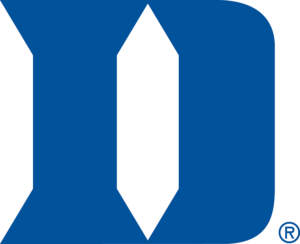 Duke
Duke 
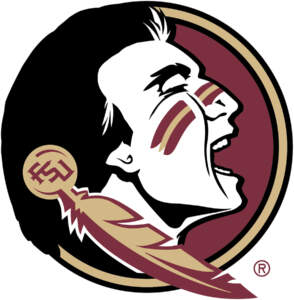 Florida State
Florida State 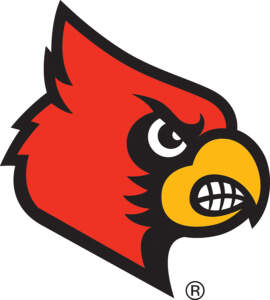 Louisville
Louisville 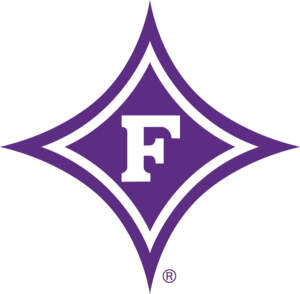 Furman
Furman 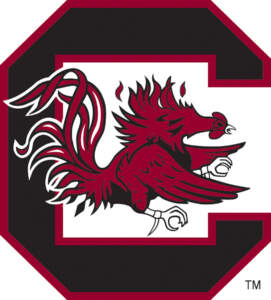 South Carolina
South Carolina  LSU
LSU 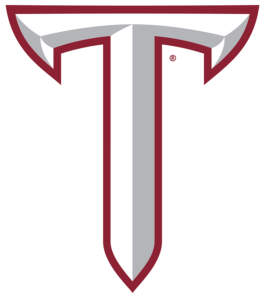 Troy
Troy 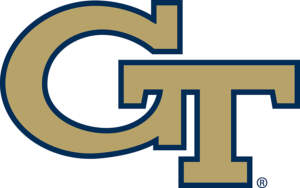 Georgia Tech
Georgia Tech 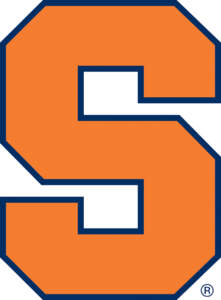 Syracuse
Syracuse 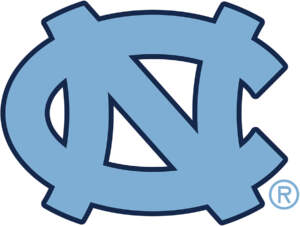 North Carolina
North Carolina  Boston College
Boston College 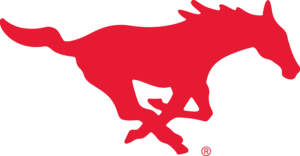 SMU
SMU 


